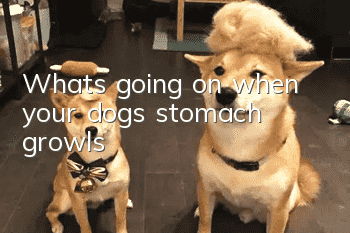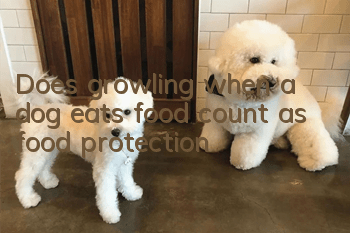What’s going on when your dog’s stomach growls?

A dog's stomach growling may be caused by hunger, gastrointestinal discomfort, indigestion, diarrhea, internal parasite infection and other factors. If it occurs shortly after the dog has eaten or after drinking water, it is considered to be caused by normal gastrointestinal peristalsis and the sound of water passing through, and usually has no obvious impact on the dog. However, if the dog still has some abnormalities, such as listlessness, loss of appetite, diarrhea, etc., it is necessary to consider that it is caused by disease. Specifically, the owner needs to send the dog to the pet hospital for examination and treatment in time.
1. Feeling hungry
When a dog is hungry, his stomach will growl, just like a human being is hungry. This is caused by gas caused by intestinal squeezing. Owners can improve this situation by feeding their dogs.
2. Gastrointestinal discomfort
When changing the dog’s food, because the dog’s gastrointestinal tract cannot adapt to these foods immediately, the gastrointestinal tract will accelerate peristalsis to digest the food. At this time, Your stomach may growl. It is recommended that when changing the food of the dog, the owner must follow the principle of step-by-step and slowly add new food in proportion.
3. Indigestion
When a dog suddenly changes dog food or eats food that is not easy to digest, causing gastrointestinal digestion problems, the gastrointestinal tract will speed up peristalsis to help digest food. , causing the dog’s belly to make noises.
4. Diarrhea
When a dog has diarrhea, the intestines may secrete more intestinal juice, which will reflexively speed up peristalsis and kill the bacteria growing in the intestines. It is excreted, so the dog's stomach will make a growling sound. At this time, you can feed the dog some probiotics to help regulate the dog’s intestines.
5. Internal parasite infection
If the dog is not dewormed for a long time, the dog will be easily infected with parasites such as roundworms and tapeworms. When a large number of Parasites crawling in the dog's intestines will cause the dog's stomach to make a growling sound, and parasites may also be excreted in the dog's stool. If this is the case, the dog needs to be dewormed as soon as possible.
- How to feed a healthy dog?
- Will Alaskan dogs shed hair in winter? What are the reasons for dog hair loss in autumn and winter?
- What causes dogs’ eyes to be red?
- Does a dog do something wrong and need to be severely punished?
- Why do dogs suffer from skin diseases?
- Things to consider when choosing puppy food
- How to train a smart Border Collie? The first step is very important!
- How to train a Malinois puppy? Eight standards for puppy training!
- What does daily grooming care for dogs include?
- What should I do if my Russian Shepherd Dog eats too much and has diarrhea?



